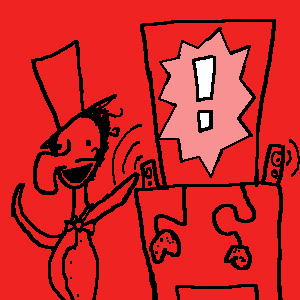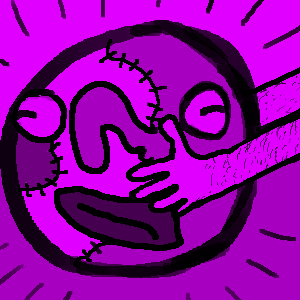Students to Studio - Shifting from an academic project to a commercial one.
How can you take the experience of team project in academia and take it in the direction of commercial games development? I cover a couple of simple solutions that are often overlooked but can help bridge the gap.

 Hello! The first thing I'm just going to cover is the fact that this article has been written from a lecture for students. This will apply primarily to them and other students at other educational establishments doing the same, but will likely hold equally relevant information for games developers. Any comments, suggestions, feedback or additional points would be greatly appreciated, as I'm always looking for new areas to investigate. Enjoy!
Hello! The first thing I'm just going to cover is the fact that this article has been written from a lecture for students. This will apply primarily to them and other students at other educational establishments doing the same, but will likely hold equally relevant information for games developers. Any comments, suggestions, feedback or additional points would be greatly appreciated, as I'm always looking for new areas to investigate. Enjoy!
As you probably heard, the grading for the team project lies in the dynamics of the team and experience rather than the final product (which makes sense since games are subjective and therefore very hard to judge/grade what is a good project or not/grading individuals based on their contributions).
BUT
This doesn’t mean that your game and the production of it can’t be a thoroughly enriching experience that furthers your career.
This article is going to be summary of the ways you can take your team project and shift it in the direction of manufacturing a commercial project.
Most of the methods explained are easy to do and entirely free.
Without further ado, let’s get stuck in!

You are Games Developers right now!
The first thing that you need to realise is whilst there is a difference between you and Rockstar (Probably a couple of billion dollars), smaller current startups are on the same playing field as you. The only difference between them and you is they’ve taken up the challenge. Also, you’re living with funding and the resources of the University and your colleagues at your disposal, so you lot are in a better position for developing games than many of them are! One of the most useful elements of my time at University was the work I did outside of studies in my spare time - what I liked to call my "Mistress projects". These extra projects and investment is what seperates you from every other graduate and student out there with a degree in the same subject. Invest into these team projects with the extra time they need and it'll pay off.

The Missing Ingredient: Audio and Music
The major thing often overlooked by teams are the soundtracks and in game audio. There are scores of musicians (see what I did there) that are looking to get involved in games development, but need that first break. You can start the career of a tech student and make your game sound amazing at the same time.
There are huge number of students at the University and the local area which are craving for projects to work on and you have music production students wanting to get into the games industry, who like yourselves need that first job. By adding this new dimension to your game, you create employment for said student (who will pour their heart into the work) and sound is a very powerful tool for creating atmosphere and mood in games. Here’s a great example – watch this trailer of Crawl without audio.
Now with audio? I would argue the success of that trailer is down primarily to the voice acting, music production and sound design (reflected by the number of recent attempts of other games to mimic it).
The other element that makes audio such a valuable tool is the ease of it’s implementation – usually just importing the sound and adding a trigger in the code (unless you’re going into binaural or something of the sort).
A good example of success through collaborating with a musician for me would be my good friend Will Bedford - We met through a collaborative organisation set up through Huddersfield University researcher and lecturer Elizabeth Dobson and we worked on a game called Trenchbrain together. Through our collaboration, I suggested that he put his portfolio on TIGSource and look for work on there and sure enough, he got a commercial gig with the developers of KYN.

Test Test Test Test Test Test Test Test Test Test Test Test
This section is critical in your games development. As mentioned in the previous talk, arguably the most important part of game development is testing, yet so many team projects see little to none of it. Without testing, your projects will be filled with bugs and have the big design questions unanswered. Getting a fresh pair of eyes/hands on your project is so important, as with the man who works in the haribo factory, the sweetness of the produce loses it's flavor.
The difficulty also becomes a problem: you spend so long playing your game you lose that "new player" ability, meaning you design the experience for yourself rather than the audience.
You also can often suffer a form of Stockholm syndrome, where you don't realize how terrible your work looks since you're always looking at it. For ages, Narcissus had a painfully bad colour palette until I received feedback that warned me that something needed to be done. I'd spent so long working on the game I'd accepted them as the colours without considering areas such as colour theory.
You need to get your game in front of as many people as physically possible of different ages, gender and experience with games. You have several options about how to go about testing:
Physical Testing – By this I mean taking it to people and getting them to physically test your game in your presence. This form of testing is highly useful for getting a hands on experience of someone playing your game with no previous knowledge. You can see how they do, see their physical and emotional responses and gain personal feedback. Remain quiet as they struggle at sections and do not pander to every request, as you won't be able to give the same guidance for those downloading your game on the other side of the planet. This kind of feedback provides tremendous motivation to the team since if you’ve done a good job, you get to see how your audience will absorb your product (and likely will experience the enthusiasm that follows). The only issue with this type of feedback is if they have any emotional attachment to the project/you they might not be as honest. This is where digital testing comes in!
Digital Testing – Get an early build of your game online and get it onto forums! There are swathes of communities out there who will offer feedback on your games. In particular, Gamejolt is a fantastic website for testing purposes. You’re all working in Unity (Aimed at the students), so you should be able to post your game up on there. Make sure to have a build/demo of your game playable in browser for testing - people at times can be lazy and unless you have the game right infront of them, there's a lower likelyhood they'll download it. A good example of this is Narcissus - the downloadable demo has had less than 200 downloads, whilst the online flash demo has recieved over 40,000 plays.
Not only will you get a decent amount of feedback in the form of comments, but also from an average rating. The one thing to take into consideration is that they will be honest, so whilst you will get some fantastic feedback, there may be some comments that make you bite your tongue. These are all good forms of feedback and you need to recognise that this isn’t intentional mean, purely a completely external and detached opinion on the project. Use the information to improve the product and remember that the people who are giving you feedback may be potential customers! If you show that you’re receptive to feedback and getting the community on board, they’ll be more likely to put their money behind the project. Write a bunch of questions down (preferably at the bottom of the page so that you get the feedback you need without spoilers!) Don’t fall foul to the Heisenberg principle.
Do not underestimate the value of an outside perspective. Take their feedback, discuss it with the team, make the changes and re-post the build with a list of updated features. A great example of this was the Sheffield based team, BoneLoaf. They released the builds of their game for free on IndieDB and based on the feedback and the millions of downloads they received, they refined the game to what the audience wanted. They’re now selling their game for twenty dollars a pop.

Engage with the Online Community
So expanding from that, a rough summary of traditional practice of games companies was to release batches of press kits then release a bunch of promotional material and marketing as the release date approached. Most significant out of this is the budget that they have to work on - in some cases millions. Development at your size of team isn’t going to be as easy, but what you can do which is a much better practice is to start a meaningful dialogue that lasts the duration of the development process. We have access thanks to the internet of huge networks and a plethora of methods of distributing media.
The thing to remember is engaging with the community is not only going to improve the profile of your team, but also give you a community fan base for future projects.
So when you post onto the site, the posts you want to be doing are releasing a wide variety of stuff – artsy things like concept art and designs for characters along with design decisions, technical breakdowns of things like fancy shaders and unusual/special effects you managed to achieve because you never know people might not how to do it and they’ll be appreciative of the knowledge.
Nothing to write about? Post up content! Screenshots of gameplay, Gifs! Gifs are amazing. Doesn’t require the production value of a video, but provides a slice of gameplay that provides more interest than a screenshot. Of course there’s there’s the aspect as well of doing trailers, video logs and where you can get them – interviews.
Content like this will get audiences excited in turn will motivate the team to work harder!
To add, at the end of the project, you’ll have a huge collection of all the awesome work you’ve done which you can reflect on together. From working on CHIGUN, I often look at the goofy artwork me and Tyler did, along with the photos we took of development. Each of the groups here have an average team number of 8 people, so it should be more than possible to keep the blog updated at the least once a day. If you can manage that, you'll start to get noticed. As standard forums work – when you post your game goes to the top of the page and as others post it gets buried. If you can keep yourself on that top page by posting on a regular basis, your name will keep cropping up and the numbers will rise, its as simple as that.
If you folks want an in depth explanation of how best to structure you pages to draw in the next traffic, let me know and I’ll do a write up of how to structure your pages and a summary of different digital media you should take advantage of.

Shows and Competitions
So this one is pretty huge. There are tons and tons and tons of shows and competitions for students to get involved in. There’s the standard quote of “This generation have got it bad these days”, but in this case entry for national exhibitions has never been easier. The most important part is these are free! A good example of this is the Independent Gaming Festival – Submissions for Developers = $95. Submissions for Students? Free (and a week longer for submission!)
All of the places I’ve shown Narcissus at, I’ve paid nothing to exhibit. All it takes is the initiative to get involved and find the venues.
There’s also the perception that a lot of the activity of games development is down south, but in the local area we have a plethora of activity. Even in the last few weeks, we’ve had Drink Up in Manchester (They had a 10 meter wide projector screen set up for people to use and monitors all around the room for people to connect their laptops up to!), PlayExpo (A massive games festival in the heart of Manchester) and we also have GaMaYo next month.
Not only will you get your game in front a lot of very enthusiastic people, but also very useful contacts such as industry veterans and publishers.
But the only way you’re going to get to that point is by working hard on your game so that it gets picked out of the different submissions applying for the event.

Actually Ship What You Make - No matter how ugly it is.
The last point is by far the simplest to address, yet I’ve seen it happen every year in team project and very often in game jams – SHIP THE GAME!
You lot invest so much time into developing a project, only to leave it to rot on your computers, and it’s such a waste!
Getting it online is easier than ever, with websites where you can upload for free yet receive 100% of the revenue from your product sold!
Even if you just put on a site to download for free, it’s on there forever, so there’s time for people to discover the project! Vlambeer put their game Super Crate Box online to download for free and it attracted thousands and thousands of downloads, won them multiple awards and basically launched their company. You can always add more content to a version that people can pay for to make it worth their money.
Even if the project is a total disaster, it’s still a useful procedure to upload since it might have just a snippet of fun gameplay which someone might pick up on. Besides, if you did your part right, at the least it's a showcase of your capabilties.
The other reason for doing this is it’ll mean you can say you have a developed game on the market.
Also the prospect of the work you’re producing going online works as a drive to not let it look/be terrible, as it’s your work on display!
It’s also useful for knowing that there’s an end to development – knowing that the launch of a project is a tangible thing. It’ll mean when doing later projects you’ll have that in mind to keep driving you forwards.
I would also suggest that you launch at least a month before final presentations, as you’ll need time to fix launch bugs.
So I hope you found this information useful and as usual, if you have any questions, don't hesitate to ask.
About the Author(s)
You May Also Like









